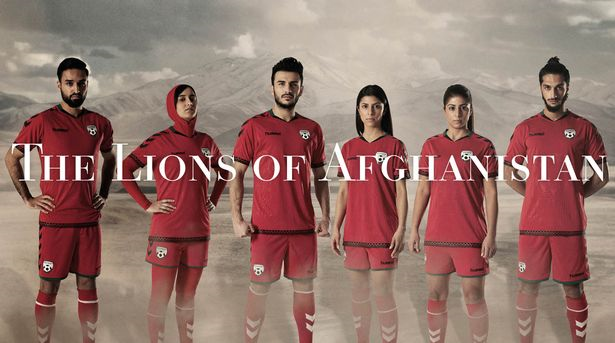$1 And Basketball Legend Kobe Bryant Brings New Sheen to Afghan Women Football Team
NEW DELHI: This week, sportswear company Hummel Sport tweeted that it will donate $1 for each new follower of the Afghan women’s national football team’s account on Twitter, upto a maximum of $1000. Once the goal was reached, the sporting company sought a financial assist from someone willing to match their goal. That someone ended up being none other than basketball legend Kobe Bryant.
“Deal,” Bryant tweeted in response to a tweet asking him to donate from Mexico women’s national team player Monica Alvarado.
The exchange helped bring attention to the Afghan women’s national football team, who had previously made headlines for a unique sporting kit. In March this year, just two years after FIFA gave the green light on head covers, sportswear company Hummel -- yes that same Hummel that led the Twitter funding initiative -- unveiled the newest iteration of the Afghani national team jersey, which features the hijab.
“We don’t sponsor the biggest teams in the world, but we make partnerships with teams and clubs with a story to tell, like Afghanistan,” Christian Stadil, the owner of the Danish sportswear brand, wrote on Hummel’s website at the time. “We try to meet the Afghan people where they are, and right now that is by helping the women play football with or without a hijab.”
“The female angle is still a very important part of this too,” he said. “Still today, it can be difficult for girls to live out their passion for sport. So that mission and vision is also a part of this; we would like to empower the fantastic strong women of Afghanistan through this collaboration.”
The importance of the association comes from the fact that given the trajectory of Afghanistan -- largely conflict ridden and torn between conservative militaristic forces and unstable governments -- it has been difficult for the Afghanistan Football Federation to obtain long-term sponsorship. Hummel now sponsors the male, female and youth teams of Afghanistan.
In the last half decade, the women’s football team has come a long way. In December 2010, the team played its first official international game, against Nepal, during the South Asian Football Federation Women's Championships in Cox's Bazar, Bangladesh. On 16 February 2012 they completed a 2–0 win against Qatar, their first official international victory. On 10 June 2014 Afghanistan Football Federation moved from South Asian Football Federation to the Central Asian Football Federation. Currently, the Afghan team has 22 members coached by Amin Amini. There are around 25 women's football teams around the country and the Football Federation is planning on holding the first national football tournament in the country this year.
For the women who play the sport in the country, there have been several challenges. Khalida Popal, former Afghanistan national women’s team -- who was instrumental in forming the partnership with Hummel -- provides an insight into the scenario. “It was a huge honour to captain my country but it was an even bigger honour to be seen as a role model and an inspiration for thousands of young girls and women in Afghanistan,” she says. “I think the Afghanistan women’s team shows the huge potential football has as a unifying force. I like to think that we have given a lot of women in our country fresh hope.”
The journey has not been easy, as Taliban control virtually prohibited women from sport. After the end of Taliban rule, Afghanistan has been locked in a state of war, as civilian casualties see a yearly rise. Further, the country remains deeply conservative, and in the patriarchal set up, women and sports often don’t mix.
Filmmaker Lela Ahmadzai sought to explore some of these themes in a documentary shot five years ago. In a film on the Afghan women’s national football team, Ahmadzai examines the growth of the sport in the country.
A Woman's Goal (English) -Afghanistan women’s national football team
“In Afghanistan women aren’t granted the opportunity to freely develop in many levels of society. Football gives women in Afghanistan the chance to build confidence and a new quality of life unknown to them before. Fear of attack is an ever-present threat. That is why the women’s team is accompanied by security detail and train every other day on ISAF’s military base in Kabul. Therefore it is not unusual for the women to be forced to interrupt practice for the landing of a military helicopter at midfield. The young women’s parents, while supporting their daughter’s wishes to play football, are also concerned with their safety and future. In a patriarchal society, like Afghanistan, football is considered inappropriate for women. Between this tension of excitement for sports and the traditional roles that afghan women have in society, rests my photography,” reads the text accompanying the film.
“For the love of football, these women put their lives at risk. They learned to play in the Afghan women’s national team. Sabera lives outside of Kabul. Every other day she makes a two hour long journey through the perilous streets of Afghanistan. She says, “My parents have take many risks, so I can play football. They support my wish and also support our team providing information about women’s football.”





